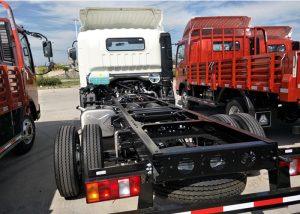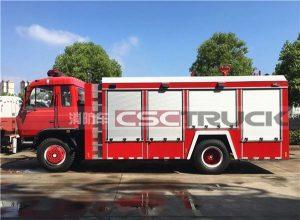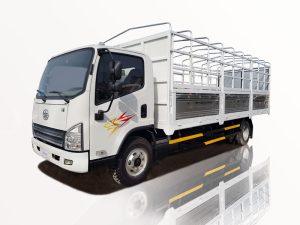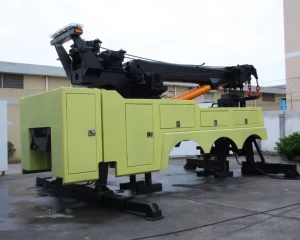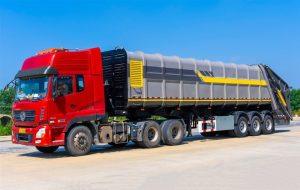Monday to Saturday - 8:00 -17:30
Understanding Dump Truck Capacity Weight: A Comprehensive Guide
Introduction
When it comes to construction, mining, or any heavy-duty job, dump trucks are indispensable. They transport large volumes of materials, but understanding dump truck capacity weight is essential for efficiency and safety. This article delves into all aspects of dump truck capacity weight, providing practical examples, tips, and common questions answered. By the end, you’ll be well-informed about what to consider when selecting and using a dump truck for your projects.
What is Dump Truck Capacity Weight?
Dump truck capacity weight refers to the maximum weight a dump truck can safely carry, which includes both the load and the truck itself. This weight is critical for ensuring that the truck operates within its limits, avoiding accidents, and maintaining road safety.
Understanding Weight Limits
The weight limits of dump trucks vary based on several factors: the type of truck, its size, and the regulations in the area where it’s being operated. Typically, dump trucks are classified into three categories:
- Light Duty: Gross vehicle weight rating (GVWR) up to 12,000 lbs.
- Medium Duty: GVWR between 12,001 lbs and 26,000 lbs.
- Heavy Duty: GVWR exceeding 26,000 lbs.
Common Types of Dump Trucks and Their Capacities
Different dump trucks serve various purposes, with specific weight capacities:
| Type of Dump Truck | Typical Capacity (Cubic Yards) | Typical Capacity (Weight – lbs) |
|---|---|---|
| Standard Dump Truck | 10-14 | 12,000-14,000 |
| Articulated Dump Truck | 20-25 | 30,000-40,000 |
| Transfer Dump Truck | 16-20 | 24,000-36,000 |
| Side Dump Truck | 13-16 | 16,000-20,000 |
Factors Affecting Dump Truck Capacity Weight
Several factors influence the load capacity of dump trucks:
1. Truck Size and Design
The size of the dump truck significantly impacts its load capacity. Larger trucks, such as articulated models, typically have a higher capacity due to their design.
2. Material Being Hauled
Different materials have varying densities. For example, a cubic yard of gravel weighs more than a cubic yard of mulch. Knowing the type of material helps you calculate the maximum weight you can carry.
3. State and Federal Regulations
Regulations also determine the maximum weight a truck can carry on specific roads. Laws vary from one state to another, making it crucial to check local regulations.
Calculating Load Capacity
To ensure that your dump truck is within capacity weight limits, you can perform some straightforward calculations:
Determine the Gross Vehicle Weight Rating (GVWR)
The GVWR is the maximum weight a vehicle can safely carry, including its own weight. To find this, refer to the truck’s manufacturer specifications or labels.
Calculate Tare Weight
The tare weight is the weight of the empty truck. You can find this value on the truck’s specifications or by weighing it on a scale.
Calculate Payload Capacity
The payload capacity is the weight of the load you can carry. It can be calculated with the formula:
Payload Capacity = GVWR – Tare Weight
Tips for Maximizing Dump Truck Capacity
To ensure that you use your dump truck efficiently and safely, consider the following tips:
1. Stay Within Legal Limits
Always confirm local regulations for weight limits, especially for heavy loads or specific routes.
2. Choose the Right Truck for the Job
Select a truck that matches the load requirements of your project. Using a truck that is either over or under-loaded can lead to equipment failure or accidents.
3. Understand Material Density
Before hauling, understand the density of your materials. Knowing how much weight corresponds to a cubic yard can help optimize loads.
4. Regular Maintenance
Keep your dump truck well-maintained to ensure it operates safely and efficiently, extending its lifespan and reducing the risk of breakdowns.
Operational Safety Considerations
When working with dump trucks, safety should always be a priority. Here are some crucial safety tips:
1. Load Distribution
Ensure that the load is evenly distributed to maintain stability while driving. Uneven loads can increase the risk of tipping over.
2. Secure Loads
Always secure loads to prevent them from shifting during transport. Use tarps or straps as necessary.
3. Awareness of Surroundings
Be aware of your surroundings, especially in construction sites or urban environments. Look out for pedestrians and other vehicles.
4. Engine and Brake Checks
Before operating, conduct a pre-trip inspection, specifically checking engine performance, brakes, and other critical components.
Real-World Examples of Dump Truck Capacity Usage
Here are a few examples of how dump truck capacity is utilized across different industries:
1. Construction Sites
In construction, dump trucks transport materials such as soil, gravel, and concrete. For example, a standard dump truck with a capacity of 14,000 lbs may deliver gravel to a foundation site.
2. Mining Operations
Articulated dump trucks, with a much higher capacity, are often used in mining to haul heavy loads of earth, ore, or rock. Their design allows them to navigate rough terrains easily.
3. Landscaping
In landscaping projects, dump trucks are used to move mulch, topsoil, or stone. By understanding the density of these materials, landscapers can optimize each load, ensuring effective deliveries without exceeding weight limits.
Frequently Asked Questions (FAQ)
1. What is the standard weight limit for a dump truck?
The weight limit for dump trucks varies based on their classification. Typically, light-duty trucks can carry up to 12,000 lbs, while heavy-duty trucks can handle weights exceeding 26,000 lbs.
2. How can I determine the correct dump truck for my needs?
Identify the materials you need to haul, measure their density, and choose a truck that has a payload capacity suitable for your requirements.
3. Can dump trucks be overloaded?
Yes, but it is unsafe and illegal. Overloading can lead to accidents and damage to the truck, which could incur costly repairs or fines.
4. What happens if a dump truck is overloaded?
Overloaded dump trucks can suffer from brake failure, tire blowouts, and can become unstable, significantly increasing the risk of accidents.
5. How often should I perform maintenance on my dump truck?
Regular maintenance should be conducted according to the manufacturer’s guidelines, often every 5,000 miles or before significant projects.
6. Are there any special training requirements for operating dump trucks?
Yes, operators should complete training and may require specific licenses depending on local regulations and the type of dump truck being operated.



